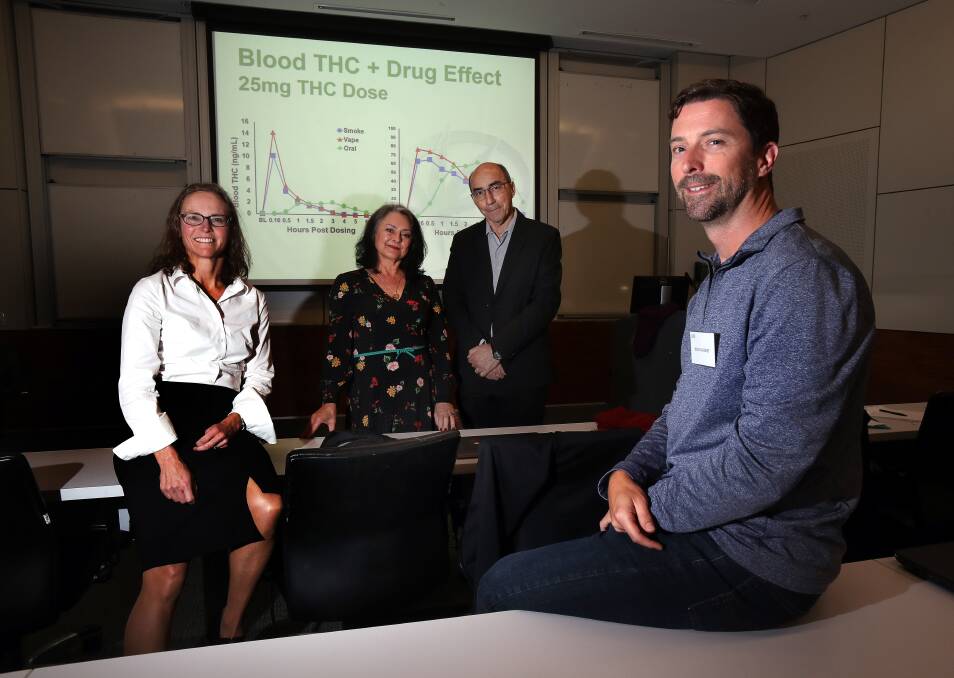
The world's leading medicinal cannabis researchers converged on Wollongong on Thursday, to discuss the good, the bad and the ugly effects of the much-hyped drug.
Subscribe now for unlimited access.
or signup to continue reading
In Australia, public demand for medicinal pot to be freely prescribed for those with chronic or terminal illness has risen dramatically in recent years, yet there remains a need for robust research to ensure there's no long-term, harmful effects.
That's where the Australian Centre for Cannabinoid Clinical and Research Excellence (ACRE) comes in.
Set up two years ago - with hubs in Newcastle and Wollongong - its researchers are working hard to develop a national research and policy framework to ensure Australians have access to products that are safe and effective for certain conditions.
Its annual scientific meeting at the Illawarra Health and Medical Research Institute heard from international leaders in the field - such as Associate Professor Ryan Vandrey, of Johns Hopkins University in the US.
"Our research focuses on the importance of how the drug is administered, what dose is given and what type of cannabis product is used," Prof Vandrey said.
"For instance there's not a lot of science on vaporisation or orally ingested cannabis products as opposed to smoking the product.
"And we know that in non-tolerant users, very low doses can produce strong drug effects and impairment - so there's only a narrow window of dosing to get an acute drug effect without impairment."
Professor Francisco Silveira Guimaraes, from Brazil's Sao Paulo university, has conducted a wealth of research into the link between cannabinoids and anxiety and mood control.
"Our laboratory was one of the first in the world to really show that CBD (cannabidiol) could reduce anxiety in animal trials," he said.
"We were among the first to undertake human studies where we showed that CBD was able to reduce anxiety in a situation that typically causes anxiety (public speaking)."
In Wollongong, human trials of medicinal cannabis could have wide-ranging clinical applications for brain disorders such as schizophrenia and Alzheimer's.
"Through our clinical trials we're learning more about the effects of different compounds in cannabis plant matter - CBD and THC (tetrahydrocannabinol) being the main two," University of Wollongong researcher Nadia Solowij said.
"We've found some beneficial effects of long-term use of CBD but only where there's some kind of medical condition, for instance where something's not working appropriately in the brain and needs to be corrected.
"However there's no good evidence of CBD being beneficial for generally healthy people - it could even be potentially harmful."
ACRE director Jennifer Martin said the collaboration between researchers was vital as the centre worked to guide government around the use of medicinal cannabis in Australia.
"We're looking at how safe these products are, what doses are needed, if they're better than current drugs or just an add-on, and whether they're going to make people sick with no benefits," she said. "We want to make good policy based on good research."

